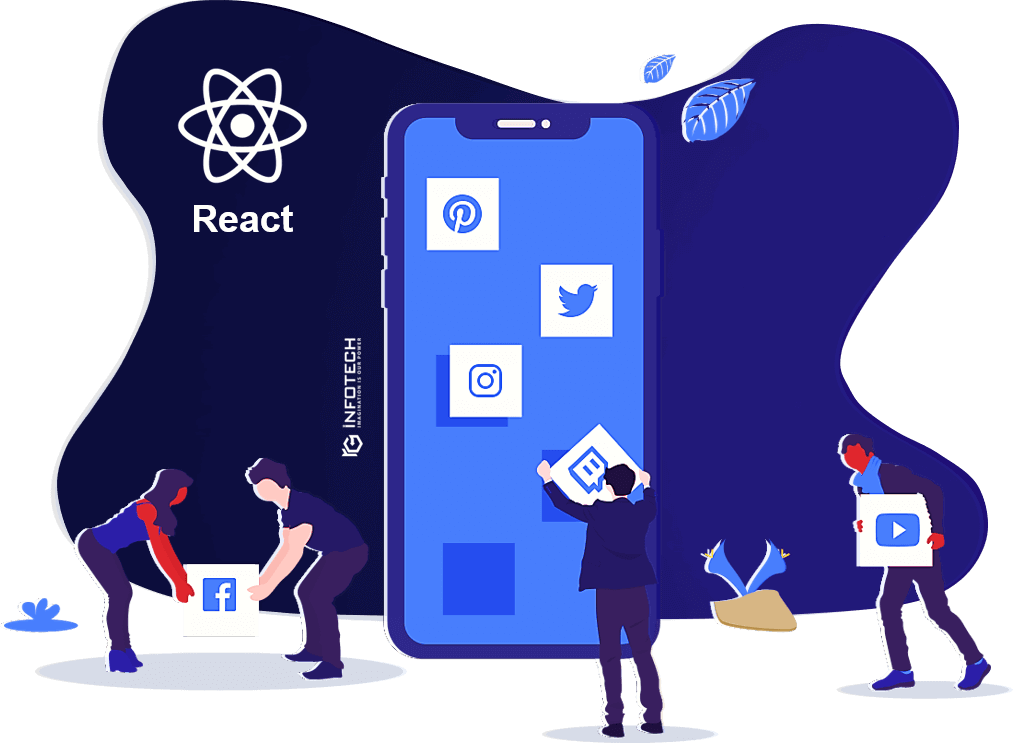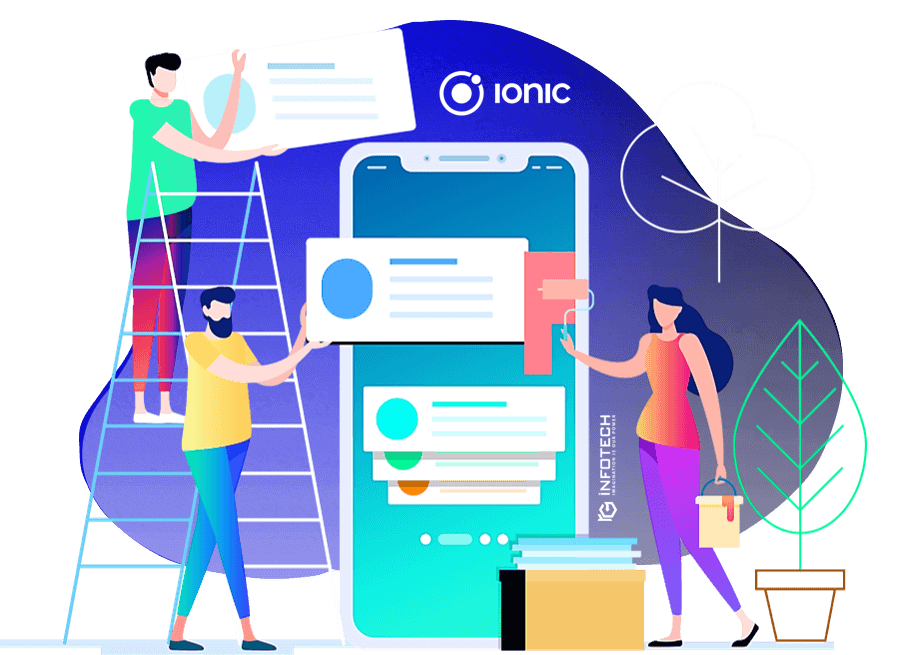React or Ionic – Which one to choose for Cross-platform mobile app development?
There are plenty of factors that, if followed, can ensure success of your mobile application, and one of the factors that most businesspersons miss to focus on, is the app development platform that is going to be used. Adding to the mobile app development tools, you required to know the eminence of its API’s and plug-in libraries, not required to mention about the integration and compatibility features.
To help you explore some of the best cross platform app development tools for trending on-demand applications like: Taxi App, food delivery app, Fantasy Cricket App, hotel booking app, etc., let’s go through two platforms you can use in your startup, highlighting their advantages and disadvantages.
01. React Mobile App Framework
The eminent cross platform development framework – “React Native”, utilizes JavaScript and convert that code into a native app code for Android and iOS. With React Native, mobile app development becomes quite simple, cost-effective, and flexible as it allows a developer to reuse the code for iOS, Android, and web. Even, it’s not essential to start from scratch when you want to develop a native Android or iOS app using Swift, Java, or Objective-C as React has ready to use library components.

Advantages
- Many mobile app developers use JavaScript to code, so using this platform will be easy for most developers.
- Apart from JavaScript, React projects also use JSX syntax extensions to provide injection protection and additional security features.
- Developers can reuse libraries, codes and pre-developed components to speed up their development.
Disadvantages
- Learning new concepts can make you exhausted and slow down your development as JSX isn’t a common language for app developers.
- Recreating a native app that has been developed in Java, Swift or Objective C, might be counterproductive. You should only go with that if you want to release more updates in near future.
02. Ionic Framework

Advantages
- Ionic supports Angular JS, which help you to develop a powerful SDK for robust and rich applications.
- With Ionic, a single code is enough for deployment of Android, iOS and Windows Apps.
Disadvantages
- Apps developed in Ionic use to have slow in-app performance as compared to native applications.
- App developers must have advanced level skill-set to use AngularJS to develop sophisticated mobile apps.
For an instance, each and every tool has its own strength and weaknesses; what you have to do is to idealize your requirement first and then select the best suited cross platform framework for your mobile development. So, idealize your requirement, project needs and the available libraries or components of the framework and then start building your cross-platform mobile application.



 rgisales
rgisales



